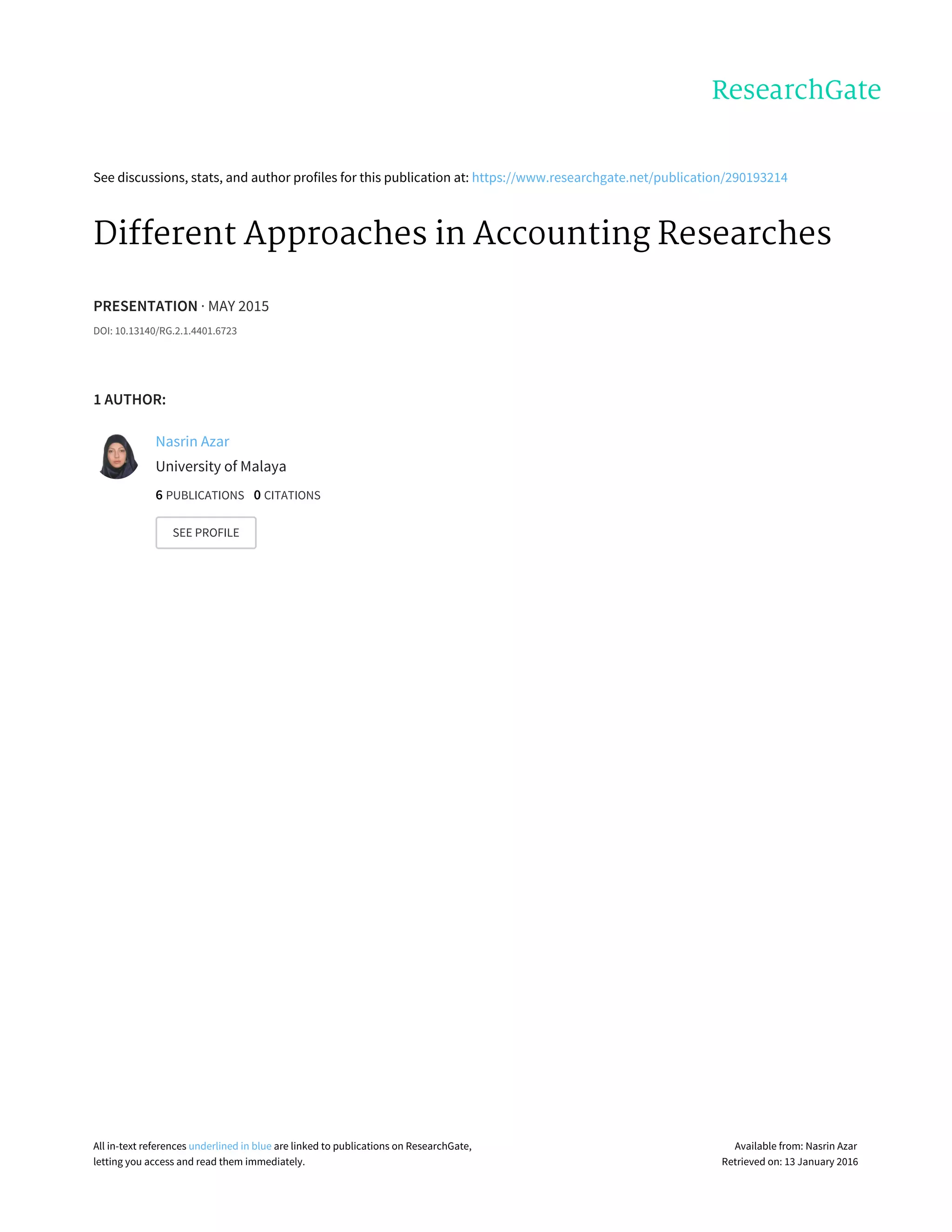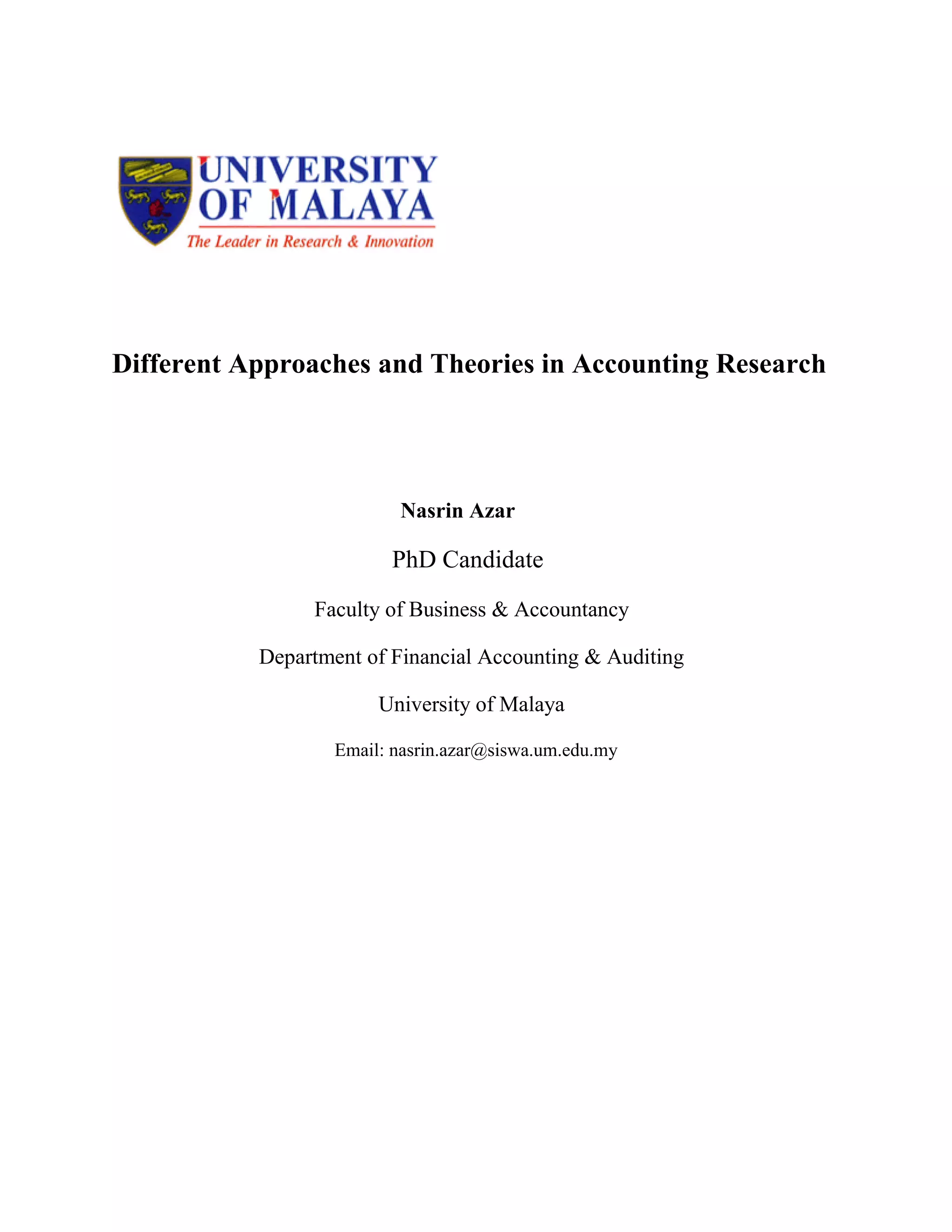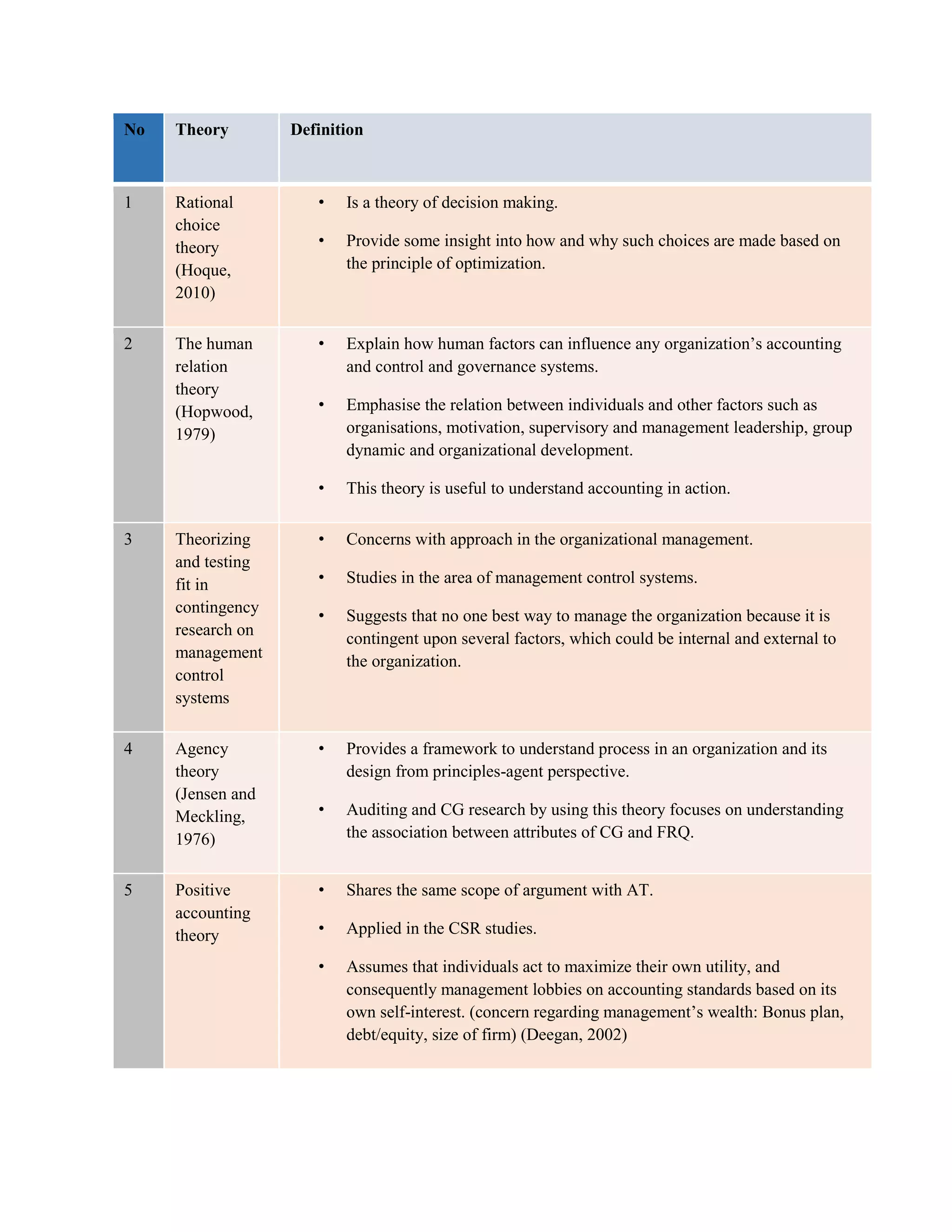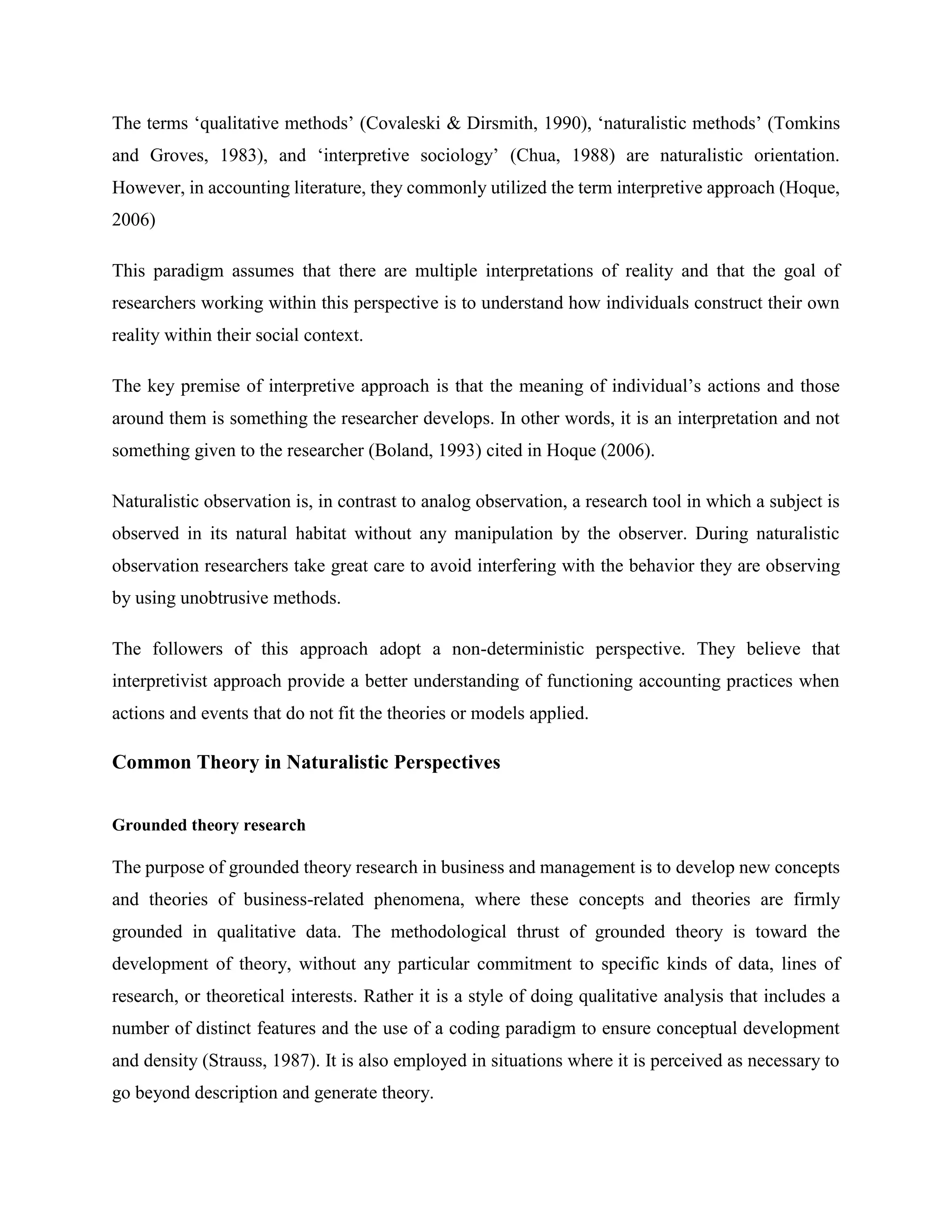1) The document discusses different approaches to accounting research, including positivistic, naturalistic, and institutional/contextual perspectives.
2) Positivistic research views accounting objectively and aims to identify laws and relationships through statistical analysis. Common theories used include rational choice and agency theory.
3) Naturalistic research assumes multiple interpretations of reality and focuses on interpretation over explanation. Grounded theory is a common approach.
4) Institutional research examines accounting in its social/political context and considers organizational legitimacy important for survival. Legitimacy and institutional theories are discussed.


![Positivistic Perspectives in Accounting Research
Positivism still seems largely underpin the dominant mode of accounting research.
In this regard, economic is currently the undisputable source of theories & methods for the
mainstream accounting studies. Moreover, accounting journals view the scientific approach is
appropriate to the discovery, explanation and prediction of accounting phenomena.
This approach focuses on the existence of a priori fixed [hypothetical-deductive] relationships
within phenomena which are typically investigated through structured instrumentation (Landry
and Banville, 1992). Indeed, the aim of this approach should be to identify causal explanations and
fundamental laws that explain regularities in human social behavior.
Research using positivistic perspectives or theories see “reality” as a concrete structure and
“people” as adopters, respondents and information processors to achieve efficiency and goals of
the organisation (Morgan and Smircich, 1980).
Advocators of positivistic approach seek primarily to discover law-like regularities, believe that
accounting is objective, and that accounting hypotheses can be statistically tested with empirical
data sets to produce generalizable findings. Finally, there is a tendency in positive research to
discount contrary research findings as anomalous.
Accounting research from this perspectives, views accounting control systems, such as budgeting
as a means to achieving low cost, efficient operations.
By using this approach the researchers normally rely on an arm-length research method-
statistically categories, key variables and then attempts to retrieve meaning by ex post facto
interpretations of tests of significance (Tomkins and Groves, 1983).
Common Theories in Positivistic Perspectives
Table 2 describes common theories utilized in positivism perspectives of social science researches.
Table 2 Common theories in positivistic perspective](https://image.slidesharecdn.com/differentapproachesinaccountingresearch-160113075805/75/Different-approaches-in-accounting-research-3-2048.jpg)







